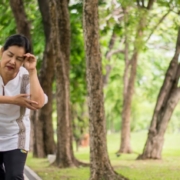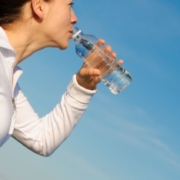Tips to Stay Safe During Heatwaves
We are getting well into the summer months which means, hotter temperatures. We’ve already seen a couple of heat waves come through California summer is officially only a few weeks old! In addition to the heat, power outages can occur during these high-temperature periods.
Please take measures to stay cool and remain hydrated. Getting too hot can make you sick. You can become ill from the heat if your body can’t compensate for it and properly cool you off. As we age our bodies cannot handle the heat like they did when we were young. Extreme heat can affect us in the following ways: The main things affecting your body’s ability to cool itself during extremely hot weather are:
- High humidity. When the humidity is high, sweat won’t evaporate as quickly. This keeps your body from releasing heat as fast as it may need to. High humidity can cause you to sweat excessively which can lead to dehydration. When your sweat does not evaporate quickly it can lead to feeling overly tired.
- Personal factors. Age, obesity, fever, dehydration, heart disease, mental illness, poor circulation, sunburn, and prescription drug and alcohol use all can play a role in whether a person can cool off enough in very hot weather. Other factors that can play a role in adverse effects of heat would include fever, medical conditions, poor circulation, certain prescription drug and use of alcohol.
- Muscle cramping may be an early sign of heat-related illness.
You are potentially at the highest risk for heat-related illness during these heatwaves. When it becomes hot outside, ask yourself these questions:
- Are you drinking enough water?
- Do you have access to air conditioning?
- Do you need help keeping cool?
You can take the following protective actions to prevent illness or death:
- Stay in air-conditioned buildings as much as you can. Air-conditioning is the number one way to protect yourself against heat-related illness or complications.
- Drink more water than usual and don’t wait until you’re thirsty to drink.
- Check on a friend or neighbor and have someone do the same for you.
- Try not to use the stove or oven to cook—it will make you and your house hotter.
- Try cool showers or baths to help you cool down.
Try to avoid going out in the hot sun, but If you need to go outside during hot weather:
- Limit your outdoor activity, especially when the sun is hottest.
- Wear and reapply sunscreen as indicated on the package.
- Pace your activity, start activities slow and pick up the pace gradually.
- Drink more water than usual and don’t wait until you’re thirsty.
- Wear loose, lightweight, light-colored clothing.
- Be careful in the sun to avoid sunburn. If you can see through your clothing you can get sunburned through them.
For additional tips from the CDC on keeping cool, click here.
To learn more about the services provided by our PACE program, click here.






















































